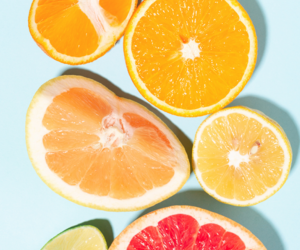
Glyphosate is an herbicide approved in the U.S. for use on all types of agricultural food crops, including fruit and nuts, as well as many types of fruits, vegetables, and grains. Florida Citrus growers are committed to providing safe and nutritious citrus to people around the world. Growers comply with all state, U.S. and international regulations for use of the product to meet standards for human, plant, animal and environmental health and safety.
Glyphosate FAQ
Is 100% orange juice safe to drink?
Absolutely. The citrus industry is steadfast in consistently being below tolerances set by the regulating body, the Environmental Protection Agency (EPA), to deliver nutritious, 100% orange juice families can feel good about drinking. In fact, 100% orange juice plays an important role as part of a healthy diet for adults and children alike, delivering key nutrients such as vitamin C, potassium, and folate.
What is glyphosate?
Glyphosate is an EPA-approved herbicide used on food and non-food crops, including oranges, to help control weeds and grasses and increase yield and quality of crops. It is one of the most widely used tools in agriculture as it helps to also reduce soil erosion and enhance harvesting efficiency. It is widely used within the industry because it is non-toxic to humans, animals and the environment. All pesticides sold in the U.S., including glyphosate, must be registered by the EPA, maintaining that glyphosate is safe for use.
What is a trace amount of residue and should I be worried?
Glyphosate has been the subject of numerous toxicological research experiments to establish the safety for both consumers and field workers as a commonly used crop protection tool. While it is possible that trace amounts of the herbicide can be found on the fruit, if present at all, levels detected in fruits and vegetables are far below the tolerances determined by the EPA.
How is glyphosate regulated?
To ensure safety, the EPA sets tolerances for pesticide levels, including glyphosate, in commodities like citrus. The EPA tolerances for residues are set 100 to 1,000 times lower than levels at which health impact might occur. These tolerance levels are considered safe based on average daily food intake by adults and children.
Modern analytical techniques detect levels of pesticides at increasingly minute levels, and as a result, most analyses are now expressed in parts per billion (ppb), versus parts per million (ppm).
Where else can I learn more?
You can learn more about glyphosate on our partner sites at the Juice Products Association and International Food Information Council Foundation.
For additional questions, please contact Samantha Lane (SLane@citrus.myflorida.com) or Shelley Rossetter (SRossetter@citrus.myflorida.com).
